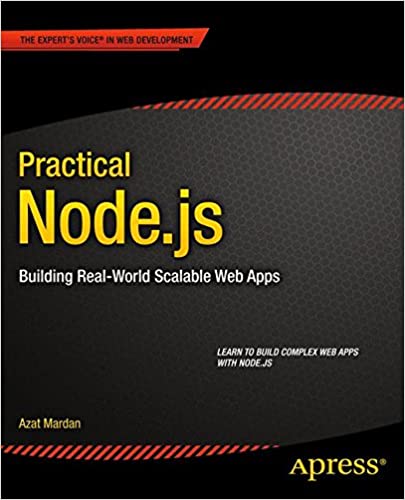; Date: Sat Nov 19 2005
Tags: Java »»»»
I'm still visiting the Quality team in Bangalore, and want to share some more observations about life here. A significant portion of the Java SE quality team, sustaining engineering and even development engineering teams are located here in Bangalore. It seems to me worthwhile to talk about life here so that you who use Java can see a little about where those of us who create Java live.
Yesterday I bought a guidebook that covers tourist spots in Karnataka. Karnataka is the Indian State of which Bangalore is the capital. The guidebook is a hoot, because it describes Bangalore as one of the "prettiest and cleanest cities in India", it's popularly called the "Garden City", etc. I can't imagine those epithets applied to the Bangalore of today. The people here complain endlessly about the traffic, and often simply don't go out on weekends to avoid the traffic. The main strategy to get through traffic is to ride a two-wheeler (scooter or motorcycle), which allows the rider to slip through cracks in the traffic cars cannot navigate.
Bangalore is clearly a melting pot, as it has drawn people from all over India and it regularly sees foreign visitors, such as myself, here on business trips. This city may be more cosmopolitan than other Indian cities, but I don't have much to go by.
There is a lot of "IT" corporations located here, and a massive boom going on in all sectors. Back when the guidebook was written perhaps those epithets were true, but Banglore (according to an article in todays newspaper) has over 7.5 million people and is on track to house 10+ million people. Another indicator is the traffic at the airport. Bangalore is in the process of designing and building a new International Airport. According to a newspaper article the other day, the original airport traffic projections were for 5 million visitors by 2010, but today they're seeing 4.5 million visitors per year. Clearly the growth rate is outstripping their projections.
Most of the roads are in bad repair, large parts of the city appear to be in a constant state of crumble, which looks to me to be simple overwhelm. But at the same time this isn't true for the whole city, as there are parts that are in good conditions. Further the city was affected by recent heavy rains, with flooding that badly impacted the roads.
Other infrastructure issues are the power system and communications system.
Power flickerings are a constant issue. At the office or at my hotel (it doesn't matter where) the power will regularly flick off. The amazing thing, to me, is for the people to not break stride, they just keep going at whatever they're doing. These power flickers must be so common they don't notice, and sure enough a couple minutes later the power flickers back on and they keep going at what they're doing. At the office the power flickers only for part of the systems, as the power for their desktop computers is somehow able to keep going.
In the communications arena, I'm told that it's very difficult to get wired communications going in ones home. The minimum wait to get a DSL line is 1 month (or longer), and I've heard stories about people who had just moved to Bangalore and the government telephone agency refused to give them a phone line. As a result mobile phones are very popular. But what of broadband Internet service?
Clearly if the future is information technology work, especially here in Bangalore which is the outsourcing poster-child city of the world, then broadband Internet service is a must. Even more of a "must" is traffic, because if you're going to give people jobs, they need to be able to get to work with relative ease. Ready access to broadband Internet service can go a ways to reducing traffic loads, as us IT workers can often work from home.
The final thing I want to discuss is culture.
Indian culture is very complex, being a hodgepodge of traditions dating back thousands of years. These people are not westerners, and "we" should not expect them to act as westerners do. Which means for interesting culture mashups.
For example there's the issue of the Urban Cattle. They really do have cows and bulls wandering around city streets, and it's just part of life here. So what happens when a cow decides to cross the street? The drivers stop and let it cross. Or what if it's sleeping in the median? The drivers navigate around the cow. What happens when a driver hits a cow? I was told that the onlookers will immediately pummel the driver to death. Hmmm... Sacred cows indeed!
But this goes way beyond cows. India has hundreds of languages, making for interesting communication between coworkers. In college my geography course instructor was a Jamaican woman whose country was also greatly affected by British Colonialism. She had nothing nice to say about the British Empire but for one thing. They gave English to the people of India, meaning that they all have English as a second language, and now the people of India have a way to talk with each other.
Source:
weblogs.java.net
Comments
Nice observations..just couple of corrections 1. If one goes to a private operator one can get a DSL/Broadband connection in 2 days. 2. People in india never had a communication problem before English. They would either communicate in Hindi which is national language or they would learn the local language. Now with english the elite 2% in india think and talk in english while the rest 98% dont. That is causing a communcation breakdown Hope you enjoy rest of your stay
Posted by: jayramj on November 20, 2005 at 10:13 PM
I differ with you in a few aspects. In relative terms Bangalore is one of the prettier cities in India. (touch wood :-) It still has huge gardens (Lal Bagh & Cubbon Park). Getting broadband connections & new phone lines installed is a breeze now. But the traffic is surely a problem - i agree (but so is it on highway 101 or in Shanghai). And I should know - I've lived here all my life & still find Bangalore beautiful - with or without the traffic that I drive through.
Posted by: bharathch on December 14, 2005 at 11:15 PM
As an ex-pat who's worked in Bangalore I've observered practically every point you identified above. Even with our shiny new office building, the power is always consistently going out at least once a day. However, with all those annoyences, the food is awesome. Explore - you'll find some really good stuff. - thebangaloreblog.com
Posted by: thebangaloreblog on December 30, 2005 at 10:40 PM











